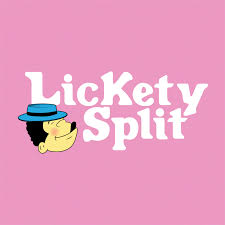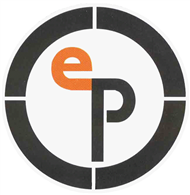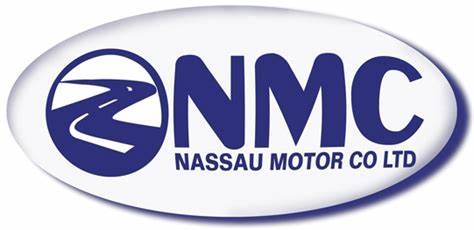The Book Lady
D
olly Parton sits behind a stack of children's books at her Inca Hoots studio complex on the south side of
In the winter of 1946, Parton was born in a one-room cabin in
In 2007, Dolly Parton's Imagination Library provided more than 4.5 million books to preschoolers in 43 states and provinces across
To most adults she's a singer and actress, but "the kids all call me 'The Book Lady,'" Parton says with a smile. "My dad was so proud of that before he died. He knew how handicapped he had been all his life. He was so smart but never got the opportunity to read."
Formed in 1996 under the auspices of the Dollywood Foundation, the Imagination Library provides one free book per month to every child from birth to age five in a participating community whose parents sign up for the program. The foundation administers the selection, ordering, and mailing of the hardcover books, which are sent to the homes of enrolled children.
Dolly & Rotary
Rotary clubs have provided invaluable help. Imagination Library is among the resources recommended in Rotary's Every School a Star literacy kit, a "how-to" guide for Rotary clubs and International Reading Association councils to carry out literacy projects in local communities. Imagination Library had an exhibit at the 2007 RI Convention in
Also, since 1990, most RI presidents have appointed a literary resource group to help promote volunteer literacy projects throughout the Rotary world. Since the Imagination Library was born, 12 million free books have been delivered to children in the
"Rotary is so willing to jump in and do their part," Parton says. "That's what they love to do."
By the end of 2007, about 45
Keeping it local
When Parton was a little girl with a rich imagination,
In a good year, Robert Lee Parton would bring in $2,500. A bad year was tough all over. As a little girl, Parton would help her father on the land. As a result, "We started working with people in my home county because it was personal," Parton says in an engaging conversation at her studio. "We were involved with the high school kids first, but decided it would be great to help kids before they started school. Today, there are more than 60,000 people in my home county. When I was young it was about 60 - and 37 were Partons.
"There are a lot of poor people in our county, but this program is for all children. You don't have to be poor to get free books. A lot of people who have money also can't read - I know that to be a fact.
"About the only book we had in our home growing up was the Bible. So many little ones were coming along all the time we weren't allowed to bring books home from school - not even homework. So I loved it when I went to school and got my hands on anything I could read. I loved the feel of books and the smell of books. I do not remember learning how to read. I'm sure I had to be taught and my mother was the one that taught me. I must have learned at such an early age it didn't register. Through books of every kind, I could travel all over the world. I loved fairy tales. Even today, that's how my mind goes. But being stuck in the mountains, reading was so important. I could be anyone. I could do anything."
Birthday books
Rebecca Smock is a pre-kindergarten teacher at
A recent Dollywood Foundation study interviewed 800 families in the participating communities of
Continuing education
Parton's favorite kid's book was the 1930 Watty Piper classic The Little Engine That Could. The story of the long train successfully navigating a foreboding mountain became a metaphor for Parton's life. A red engine is also the logo for Imagination Library. Parton even wrote a still-unreleased song, "I'm the Little Engine That Did."
"If you think you can, you can do it," Parton says. "It's like my new song, 'Better Get to Livin' - it's about attitude. If you can read, you can self-educate. I didn't like school that much because I wanted to get on with my music. But I've done more homework since I started this program than the 12 years I was in school. If you don't have the opportunity or choose not to get a greater education, you can go to any library or bookstore and find the things you want to learn about."
Readin' and songwritin'
Parton wrote her biggest hits - "Jolene," "I Will Always Love You," and "Coat of Many Colors" - from an autobiographical point of view. Now part of the landscape of contemporary country music, songs like "Coat of Many Colors" would have not been possible if Parton hadn't understood the language of lyrics. "Even to this day, I use my rhyming dictionary," she says. "Music is so natural for me. I grew up in a very musical family. I did love to read, and I was fascinated with how people could tell stories. I wanted to tell my story in a song. My love for books and stories are the reasons my most important songs are stories, where I become that character." This gift hasn't gone unnoticed at awards time either. In 2006, Parton was honored, along with Steven Spielberg, Smokey Robinson, and others, by the
Imagination on stage
During the spring and summer, the Imagination Library books are brought to life at the Imagination Playhouse at the Dollywood amusement park in Pigeon Forge. In 2006, Keiko Kasza's My Lucky Day was produced as a road show and played to more than 10,000 children at schools and libraries in eastern
"I'll write a theme song based on the story," Parton says. "I try to write something that's singable. It's easy for me to write anything, but I like being commissioned to write something. It brings me up to another level and things I wouldn't have thought to do on my own. I have to write to appeal to the children and say what they need to hear, not what I want to say. I take it seriously. I study it and read the books. It expands you as a writer."
Dolly's reading list
Good books wear as well as Parton's "Coat of Many Colors," a song she wrote because she loved to read.
These days, Parton reads Southern author Lee Smith (Oral History,The Last Day the Dogbushes Bloomed) and just about anything her friend Oprah Winfrey recommends for her book club. "There's still some aunts and cousins in my family who can't read," Parton discloses. "I feel like they're trapped, and they feel trapped. Sometimes, after you're grown and you don't know how to read, you feel stupid trying to learn. I have someone very close to me who cannot read and I say, 'I will get you a tutor,' and they say 'No, I will be embarrassed.' Children learn so fast and so easy."
Today, the Imagination Library is in 732 communities across the
A committee of individuals from education, child development, academia, and early childhood literacy select the books for the Imagination Library. The Little Engine That Could is always the first book of each library, and Nancy Carlson's Look Out Kindergarten, Here I Come! is the final book in the collection.
Enduring friends
With more young people migrating to the Internet, it can be challenging for the Imagination Library to get kids to appreciate the warm, tactile value of a good book. "Maybe you can carry a computer if you're going on a hike, but the point is that a book is a friend," Parton says. "You can stick a little book in your pocket. With a book, you can be quiet and let your imagination go crazy. Even when I finish reading a book, I can't get rid of it." Parton leans forward and starts laughing. She continues, "I might want to read it again."
Download the website sponsorship guide









